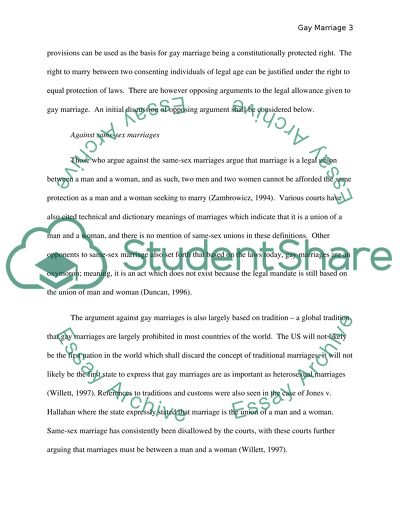Cite this document
(“Gay Marriage Philosophy Research Paper Example | Topics and Well Written Essays - 1750 words”, n.d.)
Retrieved from https://studentshare.org/philosophy/1430512-gay-marriage
Retrieved from https://studentshare.org/philosophy/1430512-gay-marriage
(Gay Marriage Philosophy Research Paper Example | Topics and Well Written Essays - 1750 Words)
https://studentshare.org/philosophy/1430512-gay-marriage.
https://studentshare.org/philosophy/1430512-gay-marriage.
“Gay Marriage Philosophy Research Paper Example | Topics and Well Written Essays - 1750 Words”, n.d. https://studentshare.org/philosophy/1430512-gay-marriage.


